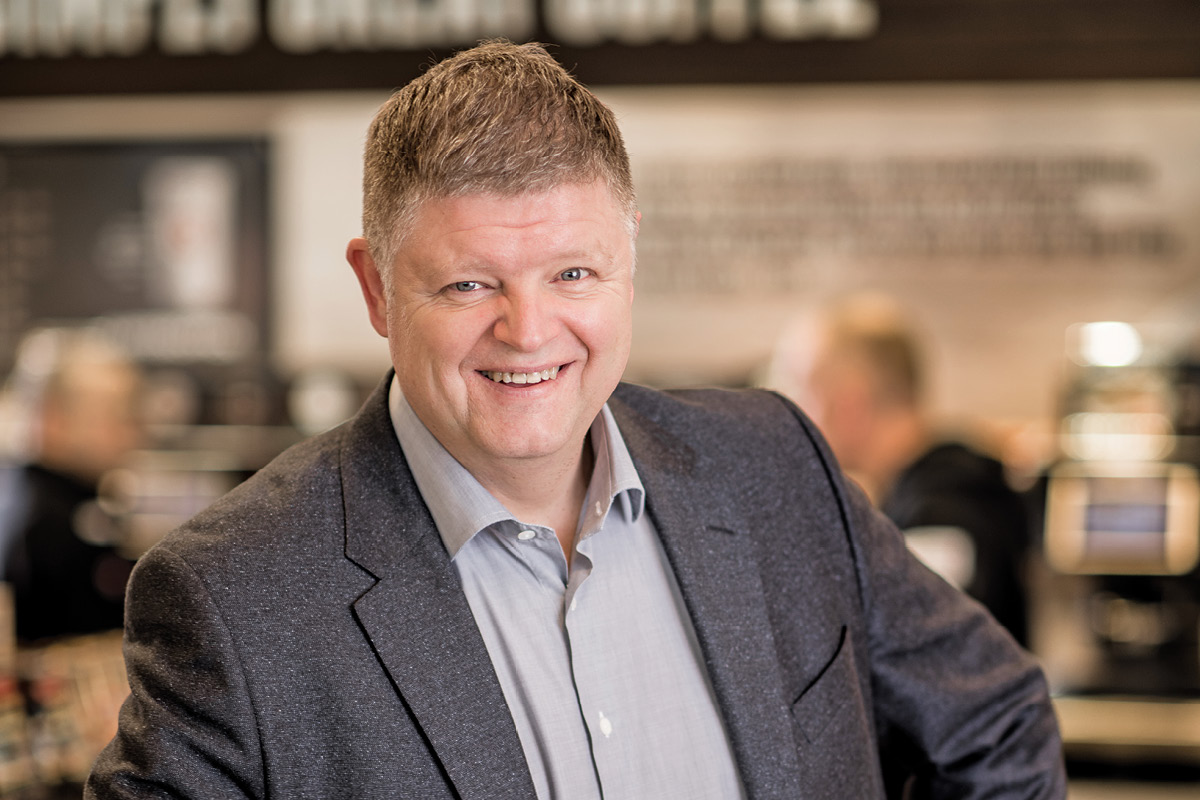It took some soul searching in a car park and some serious strolling up and down a beach for Jacob Schram to reach the point where he is today. The car park was where he made the decision to stay with Norwegian energy retail company Statoil Fuel & Retail after it was taken over by Alimentation Couche-Tard, and the beach was where the idea to propel a new united company into a global stratosphere was triggered.
Today, 4 years later as Group President of Europe for Circle K and the NACS European Industry Leader 2017, Jacob Schram recognises that while a car park and a beach may not be the most conventional places to make serious business decisions, they provided the clarity to change his life, his career and his future. “I know it sounds like a cliché, but I really have fallen in love with the company,” he says.
Jason Schram learns to love Couche-Tard
It certainly wasn’t love at first sight for Jacob. He joined Statoil Fuel & Retail in 1996 and was enjoying his transition to CEO when it became evident in 2012 that Couche-Tard, a clear leader in the Canadian convenience store industry, would be taking over his company. Jacob was nowhere near loving the arrangement. “I remember after the first board meeting when I first met Couche-Tard, I was very unsettled and reluctant to stay on with Statoil,” he says.
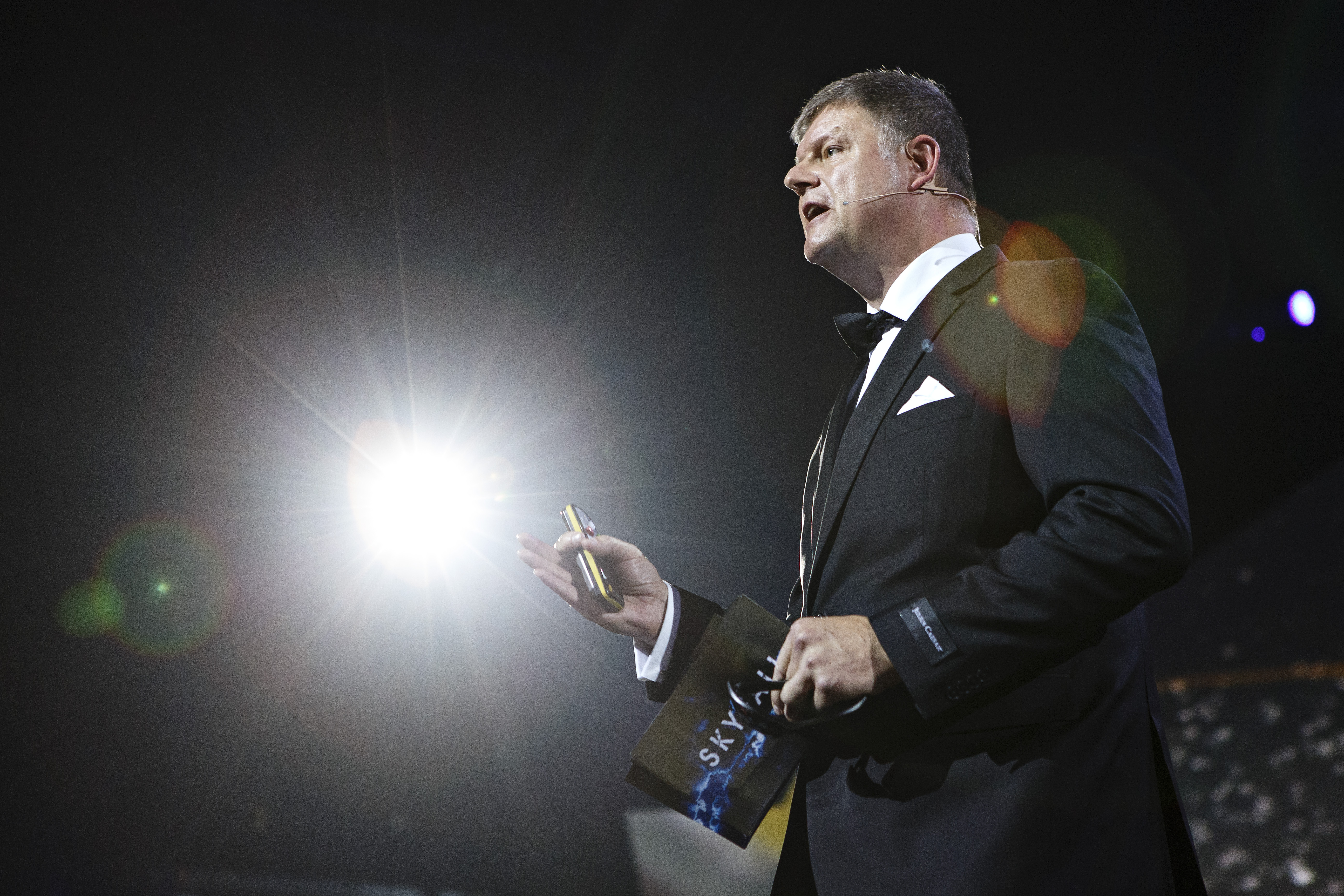
“I went down into the parking lot wondering if I should start calling all the headhunters I knew. Then, at the same time, I asked myself if I should stay on. I can remember the conflict in my head. I decided it was best not to make such a decision when I was on an emotional rollercoaster, but I also knew I wanted to follow through and see what happened. So I decided there and then to stay on.”
Nearly 5 years later, after the merger of Couche-Tard – the convenience brand offering 10,000 stores, and Statoil, the fuel brand offering 3,000 – Jacob can’t help but continue to be struck by the enormity of the deal and the potential it unleashed. “It turned from being a big disappointment to actually the very opposite,” Jacob says.
“While getting to know Couche-Tard, recognising the opportunities, seeing its business, seeing its brands, seeing its strengths, and also the areas where it could develop, I saw a big overlap between the 2 companies. I also recognised Couche-Tard as being a growth engine because it had a fantastic reputation for buying companies at the right price, taking out synergies and moving on.”
A colourful career: from ‘hamburgerology’ to fuel & retail
Jacob has enjoyed a colourful career since finishing his national service in Norway. After earning an economics degree in Copenhagen, he spent 5 years with global management consulting firm McKinsey & Company, before returning to Norway and joining McDonald’s in Oslo where he earned his next ‘degree’.
“I was the marketing and PR manager for McDonald’s Norway and that was fantastic. I was educated at what they call the ‘marketing hamburger university’. I actually have a bachelor in ‘hamburgerology’,” he laughs. “The combination of McKinsey, where I learned a lot about strategy, and McDonald’s, where it was all about execution and marketing, really helped me,” Jacob adds.
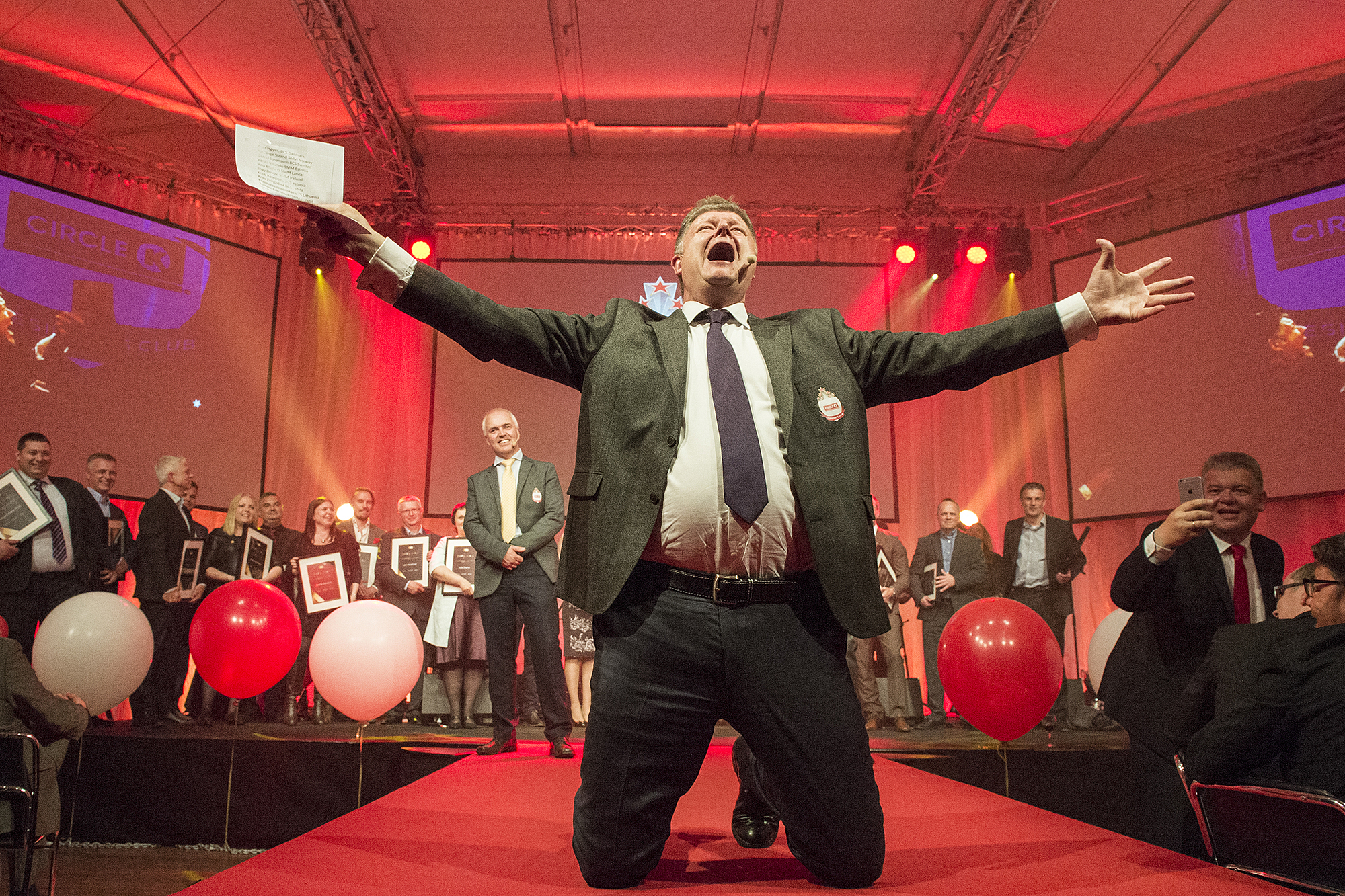
“After 3 years, I was contacted and told there was a big fuel retailer that wanted to develop their shop concepts. That was Statoil Fuel & Retail and I joined as Director of Concept in 1996. Jacob’s vision for the business was to unite all its scattered retail divisions into one domain. In 1999, he was promoted to Country Manager Statoil Retail Norway, in 2004 to Senior Vice President of Statoil Retail Europe and in 2010 was appointed CEO.
After more than 15 years of successfully streamlining Statoil’s retail operations into one platform, watching the company become partly privatised and listed on the Oslo stock exchanges in 2010 and earning itself a board, it’s no wonder Jacob was torn when confronted with a takeover by a Canadian convenience company.
Circle K: One name, one company, one vision
Jacob’s introduction to Couche-Tard was handled largely by Alain Bouchard, who founded the company in 1980 and is now chairman, having relinquished the CEO role to Brian Hannasch. Initially, to fully understand the company’s concept, much of Jacob’s time was spent travelling from Europe to its various stores throughout North America. “I had a lot of conversations with Alain and Brian, who was COO at the time,” Jacob says.
“I asked Alain, ‘What do you want? What is your vision with this company?’ Sure, he had one store in 1980 and now they were up to 10,000, but I wanted to know what he really wanted. He replied that his vision was to ‘build a big, solid company’. Those were his exact words. I particularly remember the word ‘solid’ because his father, an entrepreneur, had a company when he was a kid. It went broke and his life changed around totally, from being in a wealthy family to being quite the opposite and having to fight to even just get bread on the table. That left a big impression on him.”
Alain’s vision also made a huge impression on Jacob, who took to walking a Danish beach to contemplate the Couche-Tard CEO’s dream of operating a single, huge company. There was no doubt Couche-Tard had grown enormously over the years, but much of the growth was due to acquisitions, including of Mac’s, Circle K and Statoil. How hard would it be to have one name, one company, one vision? To the soothing sounds of the sea and the sand crunching under his feet, Jacob decided to take a punt and find out.
Project Skyfall
That night he started drafting a presentation to deliver at the next leadership conference in Lofoten. “I wanted to build a new dream,” Jacob says. “To be the best in the world, the world’s preferred retailer for convenience and fuel. So we met and agreed that within 12 months we’d have the answer on what kind of brand it should be, agreeing that we’d have a common DNA. We didn’t call it values, but our DNA profile. We agreed on all the key cornerstones and called the project ‘Skyfall’. I had just seen the James Bond movie and the name resonated.”
A global executive team was formed and 3 strategic phases developed. Phase one was finding the name and logo; phase 2, the brand’s platform; and phase 3, perhaps the most challenging, was to roll out the brand to thousands of stores. “The first phase took about one year,” Jacob says. “We didn’t want a PR company coming in to discover a new name, we wanted to find the name within the brand. Admittedly, we were guided through the process by one external company, an objective partner, because we knew it would be a process with a lot of emotions. We thought Couche-Tard would be too hard to pronounce and globalise, while nobody liked Mac’s. Then there was Circle K, which was already well established in America, so we thought that was the only logical name to take.”
Defining Circle K
Jacob says the most difficult part of the process was designing the logo. Statoil’s famous droplet was ruled out because it was too fuel oriented, while Couche-Tard’s familiar owl was difficult to combine with the name ‘Circle K’. “We tried with several versions but ended up deciding that a refreshed Circle K logo would be best, combining the familiar red from Couche-Tard and Mac’s with the orange from Statoil.”
Once the logo and brand were established, the strategy for defining the content of the brand was launched. “We decided Circle K would have 3 pillars: fast and friendly service; products for people on the go; and easy visits. That’s the whole mantra of the brand.” Phase 3 of Skyfall was the rollout, activated by a very ambitious plan hatched by Jacob. In September 2015, employees, executives and the media were invited to town halls at 15 different locations across the globe to witness the launch of the new logo at exactly the same time.
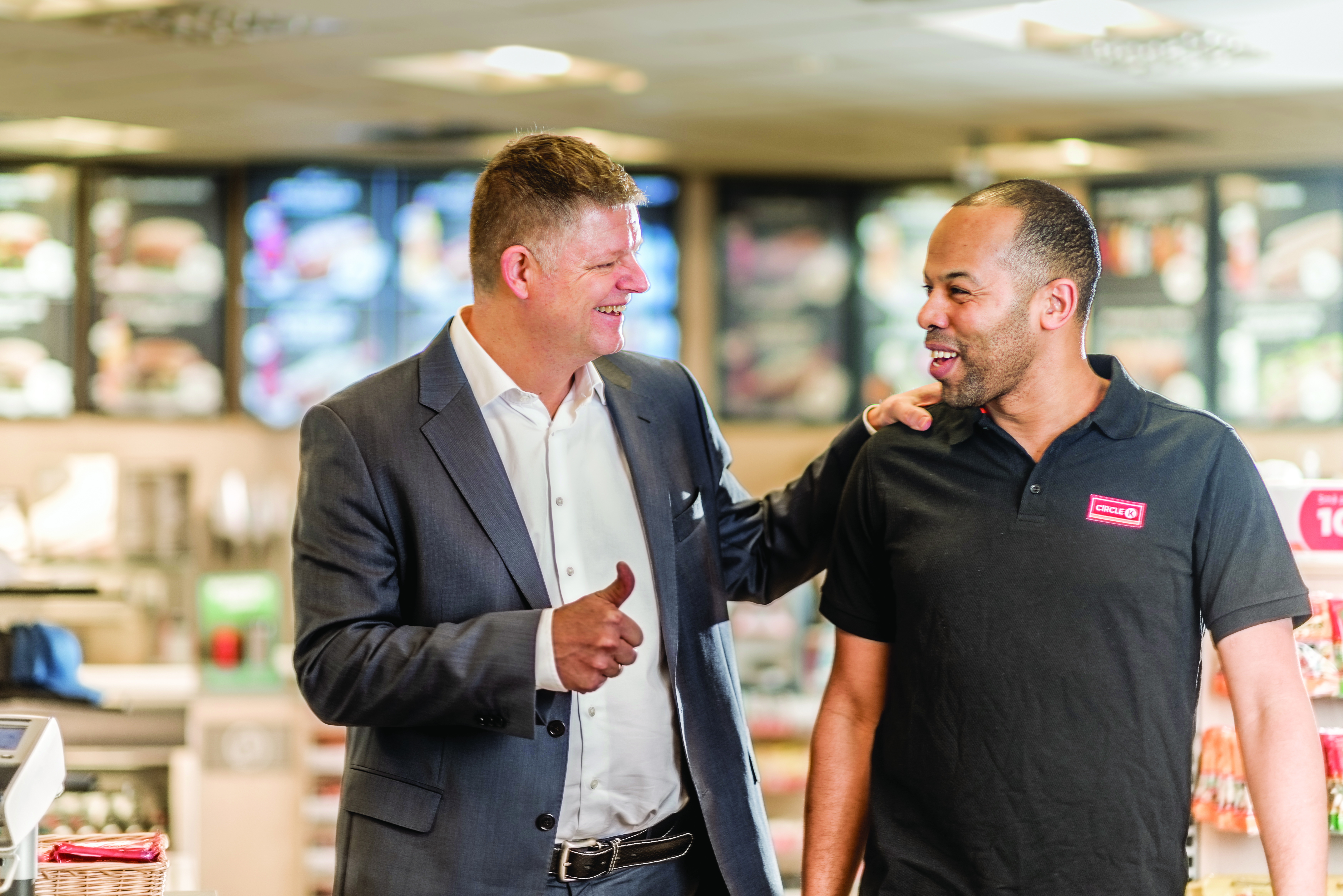
We decided Circle K would have 3 pillars: fast and friendly service; products for people on the go; and easy visits.
“Four cultures were united under one global brand, 100,000 employees in 13,000 sites at identical times across the world,” Jacob says. “We launched it and explained it; it was a fantastic, coordinated effort. Then we began to prepare for the rollouts, starting in Sweden, followed by Denmark and Norway.
“I’m glad I made the decision to stay and unite us under one brand. It was a big shock, but now we’ve created a global brand and company. I really like what we’ve built together, with all the great people involved and the great results we’ve achieved.”
Famous for food, coffee, car wash & fuel
While Circle K leads the market in Scandinavia, the Baltics and Ireland, Jacob is inspired by opportunities for further growth in the US, Canada, Russia and Asia, where the company enjoys a presence, but only through licensee agreements. In the meantime, there are 4 elements Jacob wants Circle K to focus on and become famous for: food, coffee, car wash and fuel.
You can have a satisfied employee, but that’s not the same as a productive employee.
“While understanding all of these elements can be copied and managed in other stores and stations, one element that’s hard to replicate is people,” says Jacob. “I’m not talking about a satisfied employee. You can have a satisfied employee, but that’s not the same as a productive employee. I’m talking about engaged employees at the service level. That’s what sets us apart.”
The Essence of Business
In May 2017, Jacob released his first book The Essence of Business (set to be published in English later this year).
It provides a holistic model and toolkit for leaders, using real-life experiences and lessons learned during his career working at McKinsey & Co, McDonald’s, Statoil and Circle K. Filled with examples and illustrations, the book focuses on the 3 key business philosophies of strategy, execution and people leadership, with tips on how to fulfil them successfully.
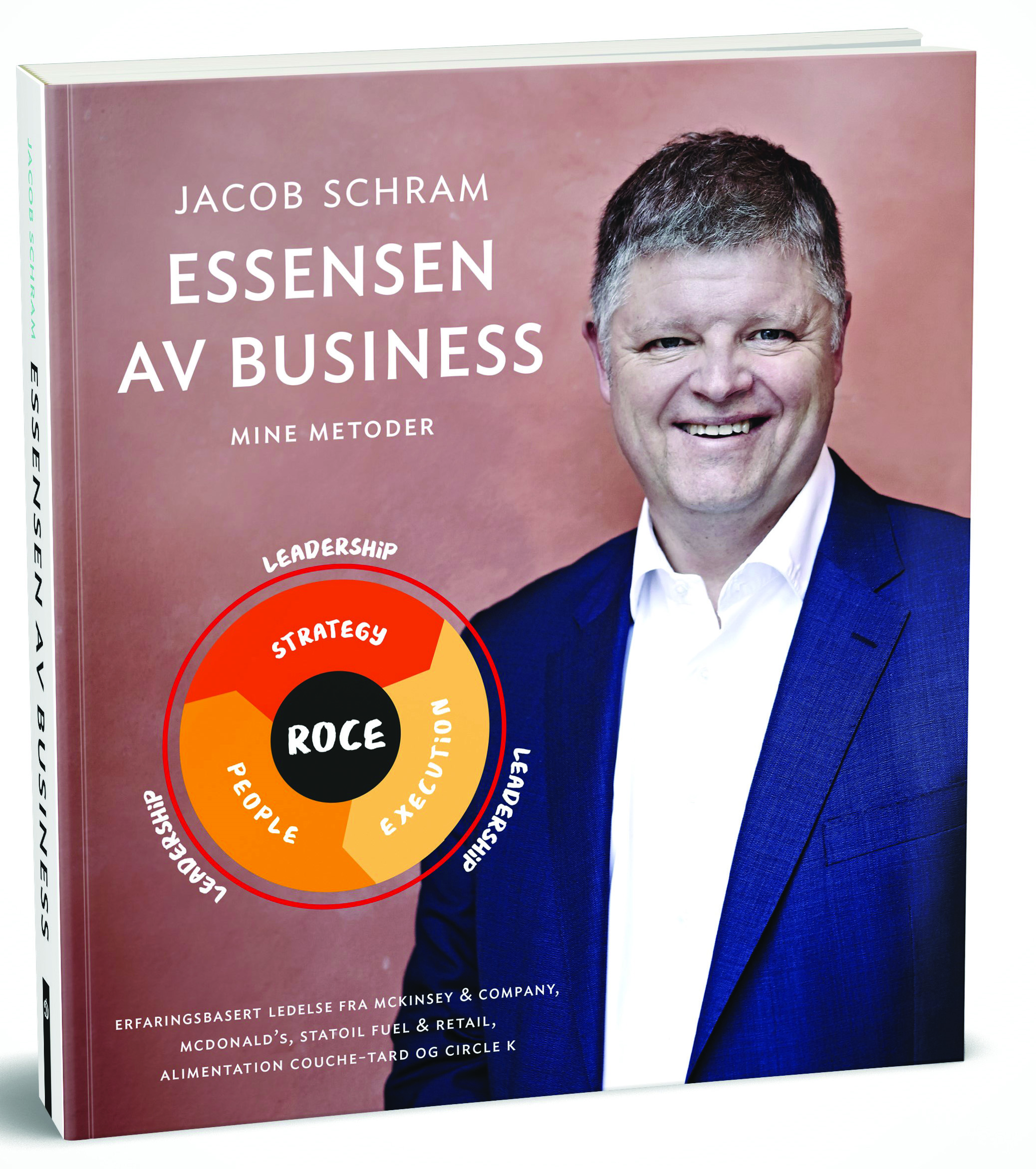
Jacob’s motivation to write The Essence of Business was driven by his own need for advice while studying at Copenhagen Business School in the late-80s. Despite seeking to broaden his education, Jacob could never find additional practical information outside of the classroom.
Today, widely acknowledged internationally by other company leaders for his extraordinary results in business, Jacob is encouraged and inspired to share the secrets to his success and his own personal style of working, leadership and company culture.
Explaining what it’s like to lead 20,000 people, Jacob explores his belief that employees are fundamentally the responsibility of the CEO and that creating a business culture should be done through face-to-face communication rather than punched out on a computer.

